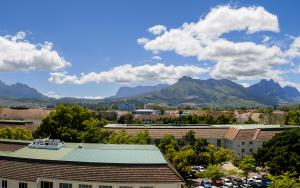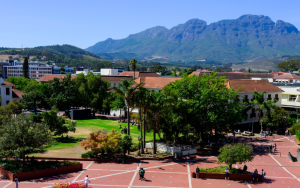
UN Expert Panel co-chaired by Crest, Dr Heide Hackmann releases latest report on Climate and SDG’s synergies
- Third Global Report on Climate and SDG Synergies (2025)
On 24-25 September 2025, the Third Global Report on Climate and SDG Synergies (2025), prepared by the Expert Group including our very own Crest, Dr Heide Hackmann. The report focused on Climate and SDG Synergies, was launched in the margins of the UNGA High-Level Week.
It highlighted the scale of opportunity that synergistic action can unlock, the report shows how aligning efforts can maximize limited resources, minimize trade-offs, and generate multiple social, economic, and environmental co-benefits.
1. What is the report about about?
This is the third global report by the Expert Group on Climate and SDG Synergy, co-convened by the UN Department of Economic and Social Affairs (UNDESA) and the UNFCCC Secretariat.
The 2023 and 2024 Global Reports on climate and SDGs synergies have made the case for pursuing synergistic action between climate action and sustainable development: they have defined synergies, explained why they are desirable, demonstrated their benefits with concrete examples, and provided guidance on what synergistic action requires in practice. These contributions have been crucial in shaping global attention for and thinking about synergies and about the importance of smart, whole-of-government approaches to advancing both sustainable development and climate agendas at once.
At the same time, this work has tended to remain rather abstract, essentially arguing for synergistic action at the level of concepts and principles. What has been missing is a concrete attempt to put numbers to synergies; in other words, to quantify the benefits of synergistic action. The purpose of doing so would, quite simply, be to stimulate debate and motivate concrete action. This is the primary aim of this Third Global Report on climate and SDGs synergies.
2. What has been your involvement in the report?
I co-chair the UN-appointed Expert Group on Climate and SDG Synergy
3. What value does this report hold for us in the developing countries?
For developing countries, the report offers critical evidence that synergistic action on climate and development is not only more cost-effective but also better aligned with their urgent social and economic priorities. By showing how coordinated investments can reduce overall spending needs, unlock co-benefits such as improved health, food security, and job creation, and strengthen resilience to climate shocks, the report provides a powerful rationale for adopting synergistic strategies.
4. What lessons or insights can we learn from the report?
Here are some important lessons/insights:
- Systems thinking & interdisciplinarity – Climate and development challenges are interconnected; research must cut across sectors and disciplines.
- Context sensitivity – Synergies differ across countries and regions, highlighting the importance of comparative and locally grounded studies.
- Metrics, data & modelling – Developing robust tools to capture both economic and non-economic benefits is central to advancing synergistic approaches.
- Science–policy bridging – Academic research can directly inform governance, policy coherence, and financing strategies, ensuring knowledge is translated into action.
5. What is the implication for Climate change and Development crisis?
Pursuing synergistic action has been identified by the UN Secretary General as a ‘course correction’ in our trajectory towards meeting the goals of both the Paris Climate Agreement and Agenda 2030. It is widely acknowledged that we are not on track towards meeting these goals and that urgent course corrections are needed.
6. What does this mean for Centre for Research on Evaluation, Science and Technology (CREST) and their commitment to the undertakings of the report?
CREST is not directly involved. I do this work in my personal capacity, representing the University as a whole.
7. What can students learn from this report?
- Systems thinking thinking – Climate action and sustainable development are not separate agendas; tackling them together multiplies impact. This raises the importance of understanding and applying systems thinking
- Global to local connection – Understanding how international agendas (Paris Agreement, SDGs) link to local development priorities.
- Agency and innovation – The need for new ideas, interdisciplinary collaboration, and innovative solutions drawing on integrated knowledge from across the disciplines and around the world.
Third Global Report on Climate and SDGs Synergies (2025) is now available for the public to read. Read the report here.
Harnessing Climate and SDGs Synergies | Department of Economic and Social Affairs



